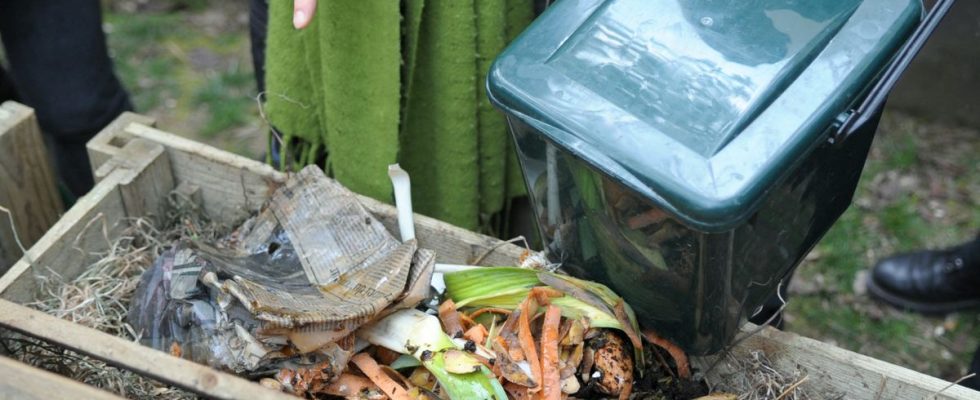Will all French people who wish be able to compost their peelings and leftovers from their New Year’s Eve meal? Maybe one day, but not this year! While the Agec law provided that all households could have a solution for sorting their bio-waste on January 1, 2024, the account is not there, three months before the deadline. “Things are moving, with lots of projects coming up, but we are far from ready,” confirms Alexandra Gentric, national coordinator for biowaste management at Ademe, during the Waste bases which take place this Wednesday and Thursday in Nantes. At the last count, it is estimated that a quarter of the French population will have a solution deployed by a community, if individual compost is removed. »
Because collecting food waste for everyone is not an easy task. For households that do not have a garden or do not have the motivation to compost, it is up to communities to tackle this thorny subject. “In 2020, few of them had anticipated, with around a hundred having set up a household collection,” continues Alexandra Gentric. Since then, with the deadline approaching, more and more of them have embarked “on this great adventure, which remains an adventure,” says Jean-François Vigier, president of the mixed household waste union of the Vallée de Chevreuse.
In this intercommunity of Ile-de-France, the sorting of bio-waste was initially done on a voluntary basis, with an additional collection route to collect the new bins given to motivated families. If today, some 5,000 pavilions are affected, there is still a long way to go to cover the entire population.
A balance to be found between individual composting, point of delivery, or collection
It must be said that “this flow of waste, seen as dirty and damp, can cause apprehension among individuals but also among elected officials,” recognizes Alexandra Gentric. The latter also fear for finances in an inflationary context, while it is sometimes a whole new sector that must be built (from awareness to valorization), with an additional cost estimated between 8 and 15 euros per year and per inhabitant. . Not to mention another obstacle, when communities decide to roll up their sleeves.
“Our territories are heterogeneous, so we cannot copy and paste a model,” explains Isabelle Louiset, strategy and development manager at Suez. Solutions must coexist. » By finding the perfect balance between individual or collective composting (in your garden or at the foot of a building), voluntary drop-off points in the street (container type) often favored in neighborhoods, or even door-to-door collection (via a new bin), which seems most appropriate in dense areas.
In the metropolises of Lyon or Nantes, this is how you rise among the “good students”. In the first, we hope to cover all residents next year, while the City of Dukes is preparing to develop the intake points in new neighborhoods, these terminals installed in the streets that residents are invited to fill with food waste. “We did a lot of explaining work, distributed buckets, and we are pleasantly surprised by the very qualitative feedback,” assures 20 minutes Mahel Coppey, vice-president in charge of waste at Nantes Métropole. In the northern districts, where the experiment began, more than 4 tonnes of bio-waste are collected per week on average. »
No sanction planned for late communities
There remains the sensitive question of the city center, where many constraints of space, accessibility, acceptance of residents and even heritage restrictions combine. In Nantes, “this work to be carried out in lace” was therefore left until the end, and will be dealt with in 2025, it is announced. In any case, time is not running out since no sanctions are currently planned for communities that have not not reachedor even not started, the objective of offering sorting of bio-waste at source for its inhabitants by 2024.
Moreover, if a fringe of them are ready, many actors are asking the State for a real national campaign to raise awareness of sorting, while bio-waste represents around a third of our trash bags and ends up buried or cremated rather than returned to the earth. It would indeed be a shame if the bins or composters, which will perhaps one day end up being installed almost everywhere in the territory, ultimately failed.

